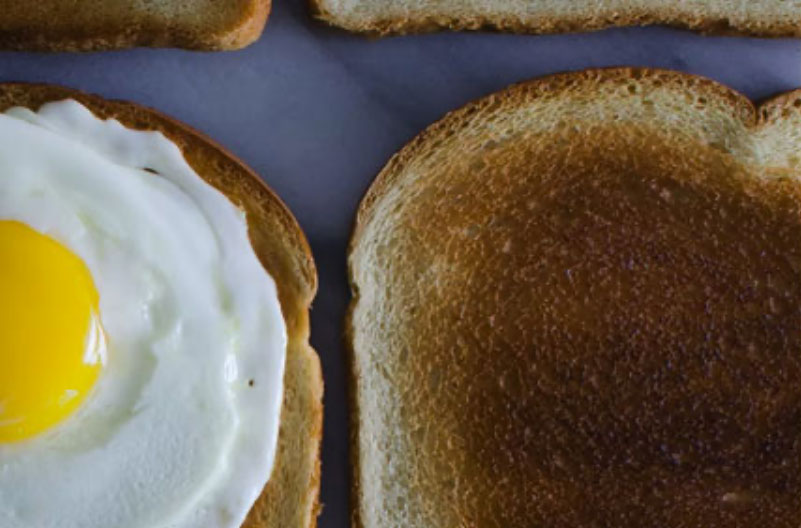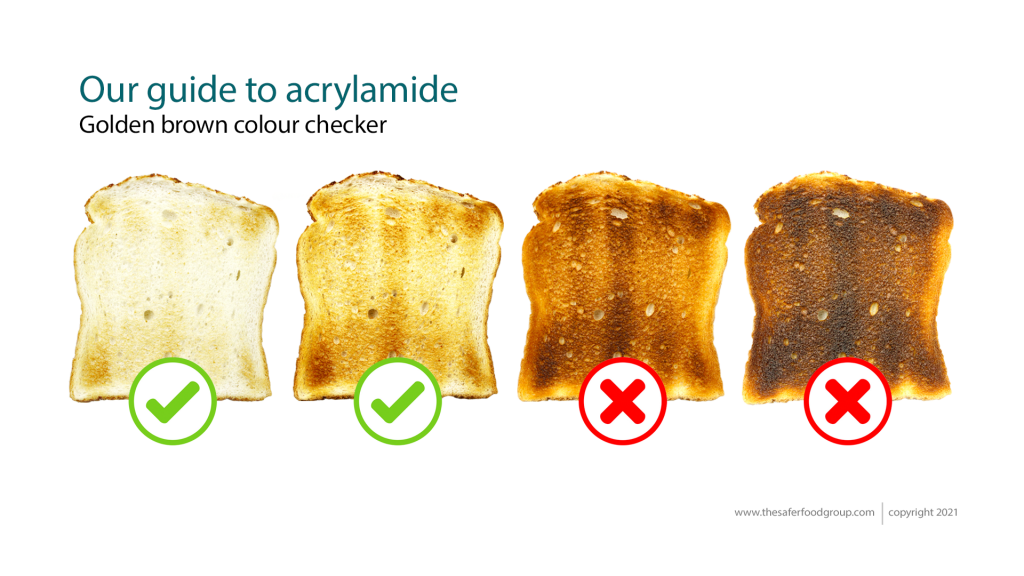What is Acrylamide and do I have to worry about it?


Acrylamide is a chemical that forms during a reaction between sugars and amino acids in starchy food, particularly when that food is cooked at high temperatures. Based on scientific studies, it is believed to be carcinogenic – that means, cancer forming – and therefore we should all be aware of its presence and understand what we can do to minimise its production when we cook.
Food handlers and businesses have a legal responsibility to ensure that the food they produce is safe to eat. Therefore, all food businesses should be aware of and take steps to minimise the production of acrylamide when purchasing, storing, preparing and cooking food, and food handlers should follow any plans that are put in place. The responsibility of food handlers and producers to minimise acrylamide levels is specifically addressed in EU Regulation 2017/2158.

The most obvious indicator that a food has been cooked at too high a temperature is its colour. Make sure fried, toasted or baked products reach a golden yellow, or lighter colour. Other quick tips include:
However, there are many more steps within the purchasing, storage, preparation and cooking processes that you must follow to stay safe. We recommend you refer to Safer Food, Better Business or your relevant industry guides for more detailed information.
Join 950,000+ learners
Explore our award winning online video based training
The Safer Food Group
Unit 2, Integrity House,
Lower Lumsdale, Matlock
DE4 5EX
Back
to top
© The Safer Food Group 2025 | Privacy policy